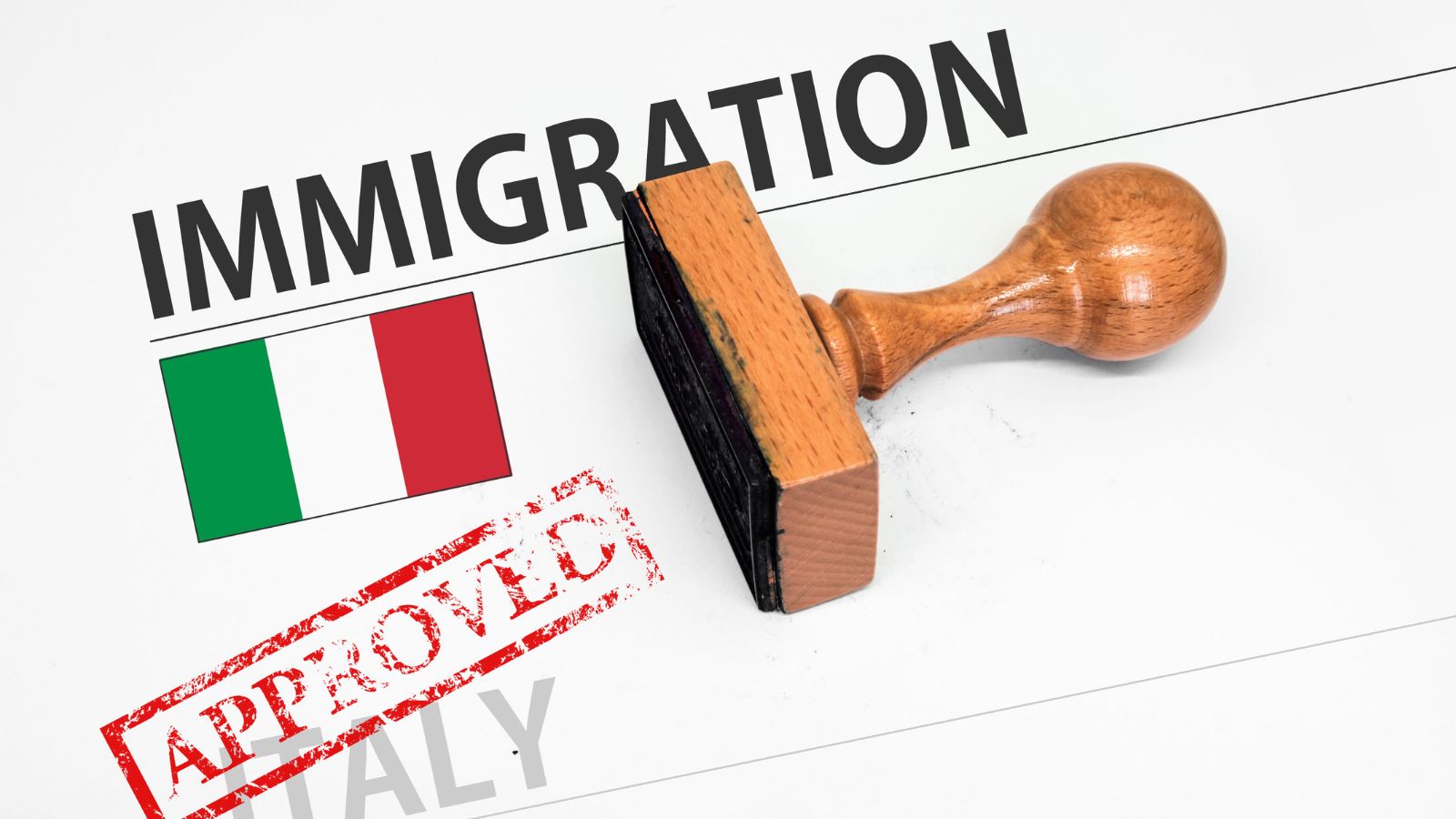
Italy Immigration Overview
Every year, Italy is always among the top ten countries that foreigners would like to move to. There are many reasons for this, including the country’s rich history, culture, and art scene, beautiful landscapes, delicious cuisine, and pleasant climate. Additionally, Italy offers a high quality of life, excellent healthcare, and a laid-back lifestyle that many find irresistible.
Italian immigration is quite straightforward for EU citizens, but for non-EU citizens, which visa you can apply for is very case-specific and is based on your personal circumstances, such as income, education, skills, or retirement.
Below you will find a general overview of both EU and non-EU immigration in Italy.
EU Citizens
Moving to Italy for EU citizens is, at least in theory, quite easy. Anyone from the European Union moving to Italy is required to register as a resident at the Town Hall (Municipio) within ninety days of relocating here.
Before submitting a residency application, it is always a good idea to check with the Town Hall in advance what documents they require, as this can vary from one to another. Depending on where you live, the registration process can take from a few days to a few months to be completed.
Once your residency has been confirmed, you will be able to request an Attestato di Soggiorno at the Town Hall. This is the document that allows you to stay in Italy and replaces the previous Permit of Stay for EU citizens. A permanent Attestato di Soggiorno can only be requested after five years of uninterrupted residency in Italy.
Registering at the Town Hall is also mandatory to be able to carry out the following: health care registration (ASL), car purchase or import, Italian ID card, Italian driving license, and several other aspects of daily life that you encounter living full-time in Italy.
Non-EU Citizens
As a non-EU citizen, you can enter Italy for up to 90 days within any 180-day period visa-free if you are a citizen of a country that qualifies for this, or with the relevant tourist or business visa. If you wish to stay beyond 90 days, you must have a long-term visa that allows you to be compliant with Italian immigration laws.
Please do not listen to the “fireside lawyers” who tell you to stay as there won’t be any problems. Most passports are scanned or stamped when you enter Italy; therefore, there is a record of when you entered the Schengen area, and even if you are not checked leaving Italy, many overstayers are caught in Zurich, Amsterdam, Barcelona, and Frankfurt, where there are much more stringent checks in place. If caught, you risk a fine, or worse, a ban from entering Schengen for a certain period. Regardless of your nationality, if you stay beyond 90 days without a visa, you will be undocumented.
NB: Inthe next couple of years, the EU will introduce two new systems starting with the Entry/Exit System (EES) in 2023 & the European Travel Information and Authorization System (ETIAS) in 2024, whereby individuals arriving and leaving the Schengen area will be recorded, thus alerting authorities immediately to anyone who overstays their 90-day stay.
Non-EU Visa Options for Italy
Therefore, if you wish to live and/or work legally in Italy beyond 90 days as a non-EU citizen, you must apply for the relevant visa. Here is a brief overview of your options:
Work Permit: You may obtain a work permit through 1) an intracompany transfer or 2) meeting the criteria for a highly qualified position. 3) within the quota system as an employee or self-employed professional (this can be challenging but not impossible, as the quota system normally has too few permits available based on the number of requests). Most employers are not willing to sponsor a work permit, but some will if there is an advantage for them.
Study Visa: This can be obtained for a full-time Italian course or for higher education. With this visa, you can work up to 20 hours per week. If you finish a university degree in Italy, you can convert a study permit to a work permit if you are offered a full-time position. This can also be converted sometimes in other circumstances, for example, if you complete a long-term Italian course, but this is very much at the discretion of the Italian authorities.
Self-Employment Visa: This is one of the most challenging visas to get for Italy, though it is not impossible to obtain. It is managed within the quota system (Decreto Flussi), and only about five hundred are issued each year, which is why it is so challenging to obtain one.
Start-Up Visa: Since June 2014, a streamlined, fast-track procedure for Self-Employment Visa applications has been in place for foreign entrepreneurs willing to establish innovative business companies in Italy.
Investor Visa (aka The Golden Visa Program): It is a two-year visa for non-EU citizens who choose to invest in strategic assets in Italy’s economy.
Elective Residency Visa: If you are a non-EU citizen and you would like to retire in Italy, you can apply for what is known as an ‘Elective Residency Visa’. To qualify for this visa, you must demonstrate that you have a monthly income to support yourself that derives from investments, a pension, rental properties, or any other non-work-related source. This type of visa needs to be applied for at the Italian Consulate that has jurisdiction over where you currently reside; it is advisable to contact the consulate before requesting an appointment to obtain the list of documents that you will need to present during your application process. Once your visa has been issued, you will be able to apply for a permit to stay in Italy. Please keep in mind that the deciding factor is showing wealth. There are no strict guidelines, and each application is decided on a case-by-case basis. In a recent immigration decree, it was deemed that in some cases, a Permit of Stay obtained through this visa can be converted to a work one.
Digital Nomad Visa: The Digital Nomad Visa is aimed at highly qualified remote workers from outside the European Union who wish to live and work in Italy. This visa simplifies the path for tech experts, online entrepreneurs, and other remote professionals to embark on an Italian adventure. Eligibility hinges on proving a minimum annual income of €28,000, securing comprehensive health insurance, maintaining a clean criminal record, and providing evidence of accommodation and sufficient remote work experience. The visa not only grants a residence permit within eight days of arrival, valid for a year with the possibility of renewal, but also extends the opportunity for family unification under similar terms. Additionally, it offers clear guidelines for navigating tax obligations, including obtaining an Italian tax code and VAT number. This initiative offers an unmatched blend of professional growth and personal enrichment, encouraging adherence to tax compliance to ensure a seamless experience in Italy’s vibrant cultural setting.
NB: Buying a property in Italy or taking part in the €1-house schemes in no way, shape, or form qualifies you for an Italian long-term visa. If you are a non-EU citizen and you buy a property in Italy, you will still need to apply for a visa if you want to remain beyond the 90-day limit.
I cannot stress enough the importance of being legal in Italy. For example, what one could do when I moved to Italy in 1988, especially as a non-EU citizen, is no longer possible in most cases today. Therefore, if your dream is to live in Italy, please make sure that you procure the appropriate visa to live and work legally here long-term.



